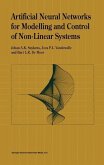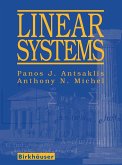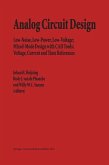Many dynamical systems in physics, chemistry and biology exhibit complex be haviour. The apparently random motion of a fluid is the best known example. How ever also vibrating structures, electronic oscillators, magnetic devices,lasers, chemical oscillators, and population kinetics can behave in a complicated manner. One can find irregular oscillations, which is now known as chaotic behaviour. The research field of nonlinear dynamical systems and especially the study of chaotic systems has been hailed as one of the important breaktroughs in science this century. The sim plest realization of a system with chaotic behaviour is an electronic oscillator. The purpose of this book is to provide a comprehensive introduction to the application of chaos theory to electronic systems. The book provides both the theoretical and experimental foundations of this research field. Each electronic circuit is described in detail together with its mathematical model. Controlling chaos of electronic oscilla tors is also included. End of proofs and examples are indicated by .. Inside examples the end of proofs are indicated with O. We wish to express our gratitude to Catharine Thompson for a critical reading of the manuscript. Any useful suggestions and comments are welcome. Email address of the first author: MVANWYK@TSAMAIL. TRSA. AC. ZA Email address of the first author: WHS@RAU3. RAU. AC. ZA Home page of the authors: http://zeus. rau. ac. za/steeb/steeb. html xi Chapter 1 Introduction 1.
Dieser Download kann aus rechtlichen Gründen nur mit Rechnungsadresse in A, B, BG, CY, CZ, D, DK, EW, E, FIN, F, GR, HR, H, IRL, I, LT, L, LR, M, NL, PL, P, R, S, SLO, SK ausgeliefert werden.
Hinweis: Dieser Artikel kann nur an eine deutsche Lieferadresse ausgeliefert werden.









